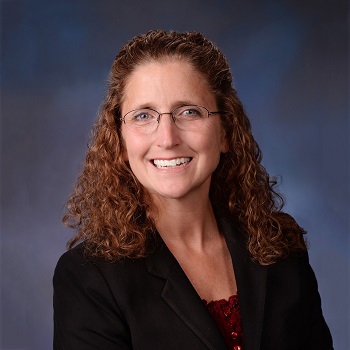Are You the Owner of A Healthy Heart?

Melony Atwood is a cardiologist in Cedar City. (Photo: Intermountain Healthcare/For The Spectrum & Daily News)
National Wear Red Day is the first Friday of February and raises awareness about heart disease and stroke as one of the leading causes of death in women. Cardiovascular disease isn’t just a “man’s disease.” It is a leading cause of death in both women and men in the U.S., according to the Centers for Disease Control.
“Women in general often think more about the health of those they love than of their own health,” said Dr. Melony Atwood, a cardiologist working in Cedar City. “Women can modify their own heart health and the heart health of those they love by seeing their doctor regularly, modifying their risk factors, learning the warning signs and symptoms of heart disease, and learning their medical family history.”
According to Atwood, cardiovascular disease is modifiable. People can make lifestyle choices and improve or control medical conditions to lower their risk for heart disease. Almost two-thirds of women who die suddenly of heart disease have no previous symptoms. This is why it is so important for women (and men) to see their primary care physician regularly and be screened for heart disease.
“Knowing your numbers is the single best thing you can do to prevent your risk for heart disease,” said Atwood. “Knowing your numbers means seeing your doctor regularly and knowing your blood pressure, knowing your cholesterol and triglyceride levels, knowing your weight, and knowing if you are diabetic. If any of these numbers are on the high side, lifestyle modifications can be made to improve your numbers and your heart health.”
Dr. Atwood said it is sad when 60-year-old women come to her office claiming that they haven’t been to a doctor in years. “It is sad because they didn’t know their numbers or their risk factors and at 60 they have missed out on 20+ years of opportunities to prevent heart disease by losing weight, eating right, and exercising,” Atwood said. “Anyone over the age of 40 should see their primary care doctor yearly.”
Regular physical activity is also important to not only improve numbers and risk factors but to also know that your body is doing OK. If a person is physically active on a regular basis, they will be the first to know if something changes inside their body. An inactive person may not know or realize what should be normal and what is not.
“The main warning sign and symptom of heart disease is chest pain or pressure with physical exertion,” said Atwood. “Some people claim it feels like heartburn, but if the pain comes consistently with exertion, it is probably not indigestion.”
Many women and men have no symptoms of heavy or sharp chest pain until they are having a life-threatening heart attack. This is why it is so important to receive regular screening tests, participate in regular physical activity, and know your risk factors.
“An often overlooked risk factor is a family history of heart disease,” Atwood indicated. “It is the one risk factor that cannot be modified. If a first degree relative such as a parent, sibling, or child has a heart event or a history of heart disease, be sure to get yourself checked. Family history matters.”
Cardiovascular disease is a modifiable disease. See a doctor regularly to uncover risk factors and develop a game plan to modify and reduce risks and start making heart-healthy choices to protect your heart.
“Heart disease can be very scary if caught unaware,” said Atwood. “Paying attention to risk factors and numbers can save you from an acute heart event. By knowing individual numbers and risk factors, you can take steps to undo the damage and thus modify and change the future.”
Today is the day to Wear Red and raise awareness for women’s heart disease. Take charge of your heart health by developing heart-healthy habits starting today.
Story Credit: https://www.thespectrum.com/story/news/2019/01/31/you-owner-healthy-heart/2734026002/
Since you’re here, we have a small favor to ask. Requests from schools and districts for our screening services are growing, which means that the need for funds to cover the cost of those services is also growing. We want to make our services available to those who request it and beyond, so you can see why we need your help. Safebeat heart screenings take a lot of time, money, and hard work to produce but we do it because we understand the value of a child's life, PRICELESS!
If everyone who reads this likes it and helps fund it, our future would be more secure. For as little as $1, you can support Safebeat and it only takes a minute. Make a contribution. -The SafeBeat Team


